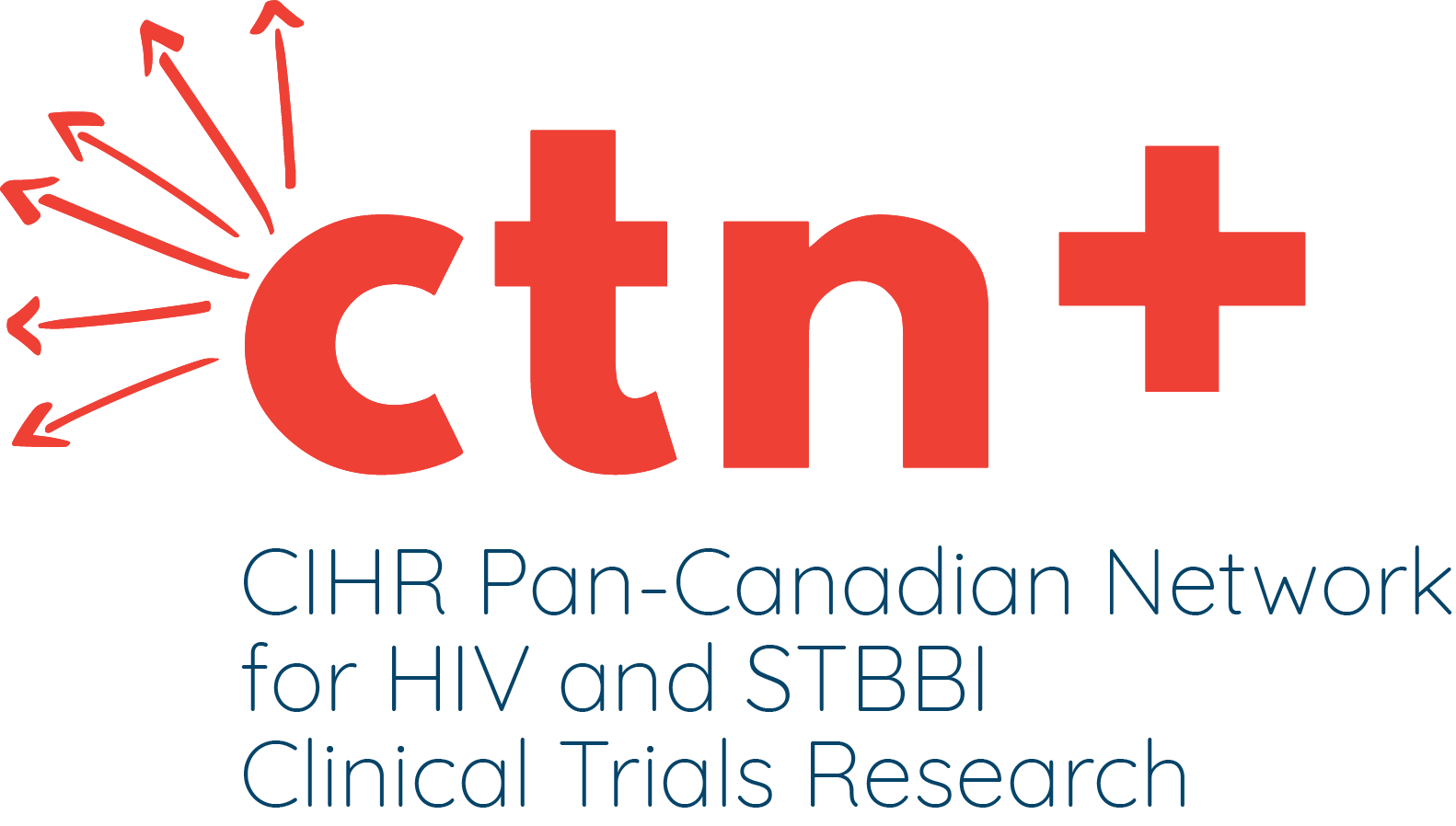Dr. Mona Loutfy
CTN Investigator
Women's College Research Institute; University of Toronto; Maple Leaf Medical Clinic
View BioWomen and Girls
Prevention (PREV)
Canadian HIV women’s sexual and reproductive health cohort study
This prospective cohort study operates within community-based research, GIPA (greater involvement of people with HIV/AIDS), and MIWA (meaningful involvement of women living with HIV/AIDS) approaches by prioritizing the leadership and experiences of women living with HIV. The aim of the study is to assess the proportion, distribution and patterns of use and uptake of women-centred HIV/AIDS services, and factors associated with service uptake among HIV-positive women living in Canada. This study will also estimate the effect of women-centred HIV/AIDS services uptake on the sexual, reproductive, mental and women’s health outcomes of women living with HIV in Canada.
Research has demonstrated that women face not only biological susceptibility to HIV, but also increased vulnerability due to social factors such as poverty, marginalization, violence, and gender inequity. Women who are HIV-positive have unique care needs, but frequently face inattention to their specific social circumstances and health needs, particularly those of a sexual, reproductive and mental health nature, and may experience diverse challenges in accessing care. Preliminary research indicates that many women could benefit from women-centred services that would more fully address their unique needs in a supportive, inclusive, and accessible manner.
CHIWOS brings together a national, multi-disciplinary research team that includes researchers, clinical staff, community partners, and women living with HIV from various fields across Canada. In the start-up period for the study, the study team built relationships within their diverse group and began outreach with the larger community. Eleven focus groups were conducted to determine community definitions for women-centred care and stakeholders were consulted across the country to develop, pilot and refine the study survey. CHIWOS will recruit and enroll 1,250 HIV-positive women in the three study provinces of British Columbia, Ontario and Quebec. Participants will complete an online survey administered by a Peer Research Associate at baseline and 18 months later. This study will yield critical information which will help fill knowledge gaps about women, HIV, and HIV/AIDS care, and may enable improvements in the care, health, and wellbeing of HIV-positive women in Canada.
Website: http://www.chiwos.ca/
Twitter: @CHIWOSresearch
Facebook: https://www.facebook.com/CHIWOS
Participants will be recruited into the study across each province from various clinics, AIDS Service Organizations, social services such as shelters, and through online, peer outreach and other informal networks. If interested in participating or would like more information, please contact a Coordinator in your region.
If you would like more information on this clinical study, please refer to a participating site or the CHIWOS website.
Here’s who is leading this study.
Can’t find what you’re looking for? Email ctninfo@ctnplus.ca.
Women's College Research Institute; University of Toronto; Maple Leaf Medical Clinic
View BioHere’s where this study is being conducted.
Publications related to this study.
Considering the experiences of women with HIV in Canada over the past decade.
View PublicationDescribes the prevalence of breastfeeding among women living with HIV in Canada and explores experiences of care, support, and stigma related to infant feeding
View PublicationAssessing the care cascade of women living with HIV in the Greater Toronto Area versus the rest of Ontario and Canada
View PublicationDescribing a process of using strengths-based approaches grounded in connections with the Lands and Waters to explore how Indigenous Women living with HIV support their health and well-being by drawing upon Indigenous teachings and healing
View PublicationMeasuring the prevalence of comorbidities among women living with HIV in Canada
View PublicationEstimating the associations between food and housing insecurity with HIV-related stigma among women living with HIV in Canada
View PublicationMeasuring prevalence and key outcomes of relationship control among women living with HIV in Canada
View PublicationThrough community-academic partnership, the authors identified recommendations for developing a national action plan focused on enabling environments that shape sexual and reproductive health and rights by, with, and for women living with HIV in Canada
View PublicationUnderstanding recent sex work prevalence and its longitudinal associations with stigma, psychosocial and clinical HIV outcomes among women living with HIV in Canada
View PublicationMeasuring the reported impact of HIV non-disclosure case law on violence from sexual partners among women living with HIV in Canada
View PublicationAnalyzing unwanted experiences during perimenopause and menopause to inform care
View PublicationA cross-sectional assessment of menopausal hormone therapy uptake and barriers to use among women living with HIV who are entering menopause
View PublicationMeasuring and comparing pregnancy intentions of women living with HIV
View PublicationAssessing the prevalence and correlates of help-seeking among women who reported experiencing violence in adulthood and discussing considerations for better supporting women who experience violence
View PublicationExamining factors important for a women-centred HIV care (WCHC) approach
View PublicationMeasuring the prevalence of women discussing reproductive goals with any current healthcare provider and assessing the effect of the current HIV care provider’s gender on such discussions and whether comfort was a mediator
View PublicationThe “Women-Centred HIV Care” (WCHC) Model has been developed to address the needs of women living with HIV
View PublicationAssessing the validity of a self-report measure of undetectable viral load among women with HIV in British Columbia, Canada
View PublicationAssessing the prevalence and correlates of HIV acquisition via forced sex among women living with HIV in Canada
View PublicationUnderstanding the correlates of attrition at stages of the care cascade for women living with HIV
View PublicationDescribing care gaps across a typology of care
View PublicationProfiling the Canadian HIV Women’s Sexual and Reproductive Health Cohort Study (CHIWOS) to investigate the concept of women-centred HIV care (WCHC) and its impact on the overall, HIV, women’s, mental, sexual, and reproductive health outcomes of women living with HIV
View PublicationConducting a retrospective cohort study of antiretroviral naïve participants in the Canadian Observational Cohort (CANOC) collaboration initiating atazanavir/ritonavir- or darunavir/ritonavir-based treatment
View PublicationEstimating the prevalence and correlates of condomless sex with regular HIV-serodiscordant partners among women living with HIV with an undetectable viral load on anti-retroviral therapy
View PublicationMeasuring health-related quality of life (HRQOL) among women living with HIV (WLWH) in Canada between August 2013 and May 2015. We investigated differences by perceived receipt of women-centered HIV care (WCHC)
View PublicationDetermining gender differences in HRQoL at the time of a positive HIV test, and whether factors associated with HRQoL differed between men and women
View PublicationUnderstanding the correlates of attrition from the HIV cascade of care for women living with HIV
View PublicationReviewing HIV-specific patient-reported outcomes to produce an inventory and to identify the central concepts targeted over time
View PublicationHighlighting the need for integrated pre-exposure prophylaxis (PrEP) and nonoccupational postexposure prophylaxis (nPEP) integrated prevention programs
View PublicationConducting focus groups to understand women’s experience of seeking care, with the purpose of identifying key characteristics that define a women-centered approach to HIV care
View PublicationExamining pathways from HIV-related stigma to ART initiation, current ART use, and ART adherence among women living with HIV in Canada
View PublicationMeasuring sexual satisfaction and pleasure across five relationship types among women living with HIV in Canada
View PublicationDescribing the recruitment of women living with HIV (WLWH) into the community-based Canadian HIV Women’s Sexual and Reproductive Health Cohort Study (CHIWOS)
View PublicationAssessing the prevalence of substance use among women living with HIV (WLWH) and comparing them with expected values from general data
View PublicationAssessing factors associated with experiencing food and/or housing insecurity among women living with HIV (WLHIV) in Canada
View PublicationUnderstanding the impact of geography on the wellbeing of women living with HIV by assessing geographic differences in HIV-related stigma experiences among women in the Canadian HIV Women’s Sexual & Reproductive Health Cohort Study (CHIWOS)
View PublicationDetermining the features of care that facilitate access to comprehensive primary care, inclusive of HIV, comorbidity, and sexual and reproductive healthcare amongst women living with HIV
View PublicationExamining the presence and contributors to posttraumatic stress disorder symptoms amongst women living with HIV
View PublicationTesting pathways from multiple types of stigma (HIV-related, racial, gender) to physical and mental HR-QoL utilizing baseline survey data from a national cohort of women living with HIV in Canada
View PublicationMeasuring the prevalence and correlates of attrition for women living with HIV across cascade stages overall
View PublicationStudying awareness of 2012 Supreme Court of Canada obligatory HIV disclosure ruling
View PublicationStudying relationship between mental health and antiretroviral adherence amongst transwomen living with HIV
View PublicationDetermining the age of menopause, prevalence of early menopause and premature menopause, and risk factors for menopause <45 years in Canadian women with HIV
View PublicationElucidating the unique factors affecting transition preparedness and perception of adult HIV care among a cohort of young women with HIV transitioning from pediatric to adult medical care
View PublicationEngaging patients and providers to codesign care recommendations to improve care for women living with HIV in Quebec
View PublicationMeasuring prevalence and correlates of sexual anxiety among women living with HIV
View PublicationMeasuring the prevalence and correlates of abnormal menstruation among women living with HIV in Canada
View PublicationAssessing the impact of social determinants of health on hazardous drinking among women living with HIV
View PublicationStudying pervious maternity experiences on subsequent reproductive intentions among women living with HIV
View PublicationExamining how multiple, nested, and interacting systems impact the protective process of resilience for women living with HIV
View PublicationEstimating the associations between social determinants of health and HIV-related care outcomes among women living with HIV with recent (within past year) or ever (before past year) incarceration experience
View PublicationExamining the mediating role of experiencing recent violence in the relationship between stigma and depression among women living with HIV in Canada
View PublicationDescribing community-based research (CBR) particularly within large-scale cohort studies of women living with HIV where gender, cultural and linguistic diversity, HIV stigma, substance use experience, and power inequities must be navigated
View PublicationDescribing barriers and facilitators to access to medical transition among trans women living with HIV
View PublicationAssessing and comparing physical and mental health components of quality of life (QoL) for older and younger women living with HIV (WLWH)
View PublicationStudying intersectional stigma and HIV-related health outcomes among women living with HIV
View PublicationIdentifying typologies of social determinants of health influencing drug use practices among women living with HIV
View PublicationStudying engagement of transgender women living with HIV in the HIV care cascade in Canada
View PublicationStudying love and relationships amongst HIV infected women in Canada towards supporting women’s overall sexual health
View PublicationStudying HIV positive transwomen’s approach to healthcare in face of stigma
View PublicationMeasuring adherence to current national cervical cancer screening guidelines among women with HIV in 3 Canadian provinces and identify factors associated with delays
View PublicationComparing structural determinants of health and self-rated health between women living with HIV and the general population
View PublicationStudying social ecological pathways affecting quality of life, with a focus on economic insecurity and social support, among women living with HIV
View PublicationPresenting CHIWOS, a large-scale, multi-site, national, longitudinal quantitative study that has operationalized community-based research in all steps of the research process
View PublicationInvestigating the influence of growing social, legal and public health surveillance of HIV on sexual activity and satisfaction of women living with HIV
View PublicationAn innovative community-based survey development process
View PublicationA supplement containing contributions discussing varied perspectives and topics related to sexual and reproductive health and human rights of women living with HIV
View PublicationDescribing how existing services can be socially marginalizing, how women enact ‘geographies of resistance’ and succeed in carving out their own safe options for care and support, and recommendations towards developing local and community-driven ‘geographies of change’
View PublicationExploring HIV-positive women’s meaningful involvement in the design and delivery of HIV/AIDS services in British Columbia, Canada
View PublicationDetermining the prevalence, severity, and correlates of psychological distress among women accessing HIV care participating in the Ontario HIV Treatment Network Cohort Study
View PublicationInvestigating the effects of HIV and HAART on HPV persistence and cervical squamous intraepithelial lesions
View PublicationExploring the concept of women‐specific HIV/AIDS services to identify and define what key elements underlie this approach to care
View Publication

